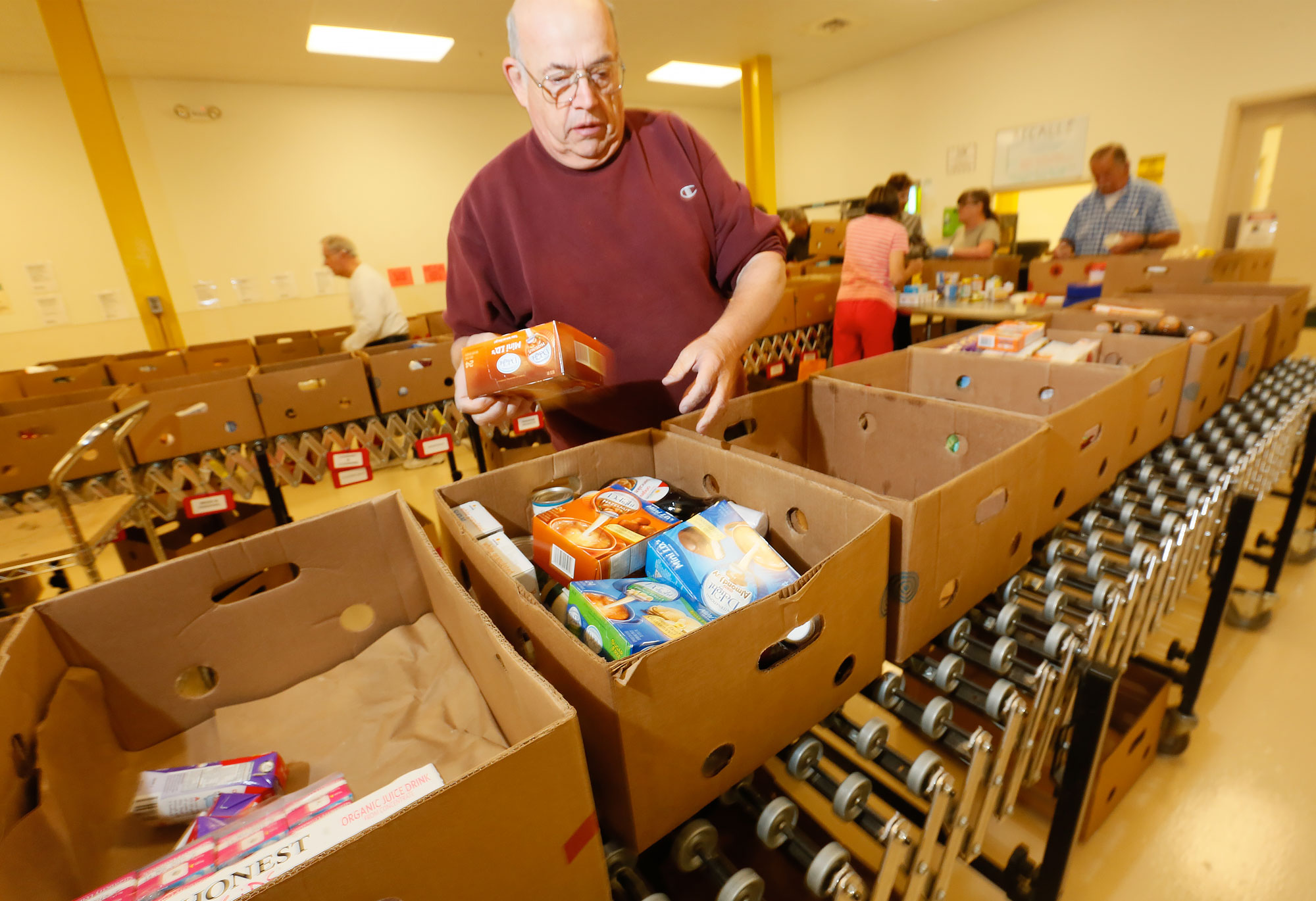New Hampshire has almost as many food pantries and soup kitchens as it has cities and towns. Tucked away in churches and community service agencies, these organizations help feed tens of thousands of New Hampshire residents – many of them elders, young children and the working poor – every single day. The New Hampshire Food Bank, which distributes food to agencies statewide, estimates that 10.2 percent of New Hampshire’s population experiences food insecurity.
Many food pantries and soup kitchens have standing lists of needs. But we asked some folks working in those organizations what they really wished they had, or had more of, to distribute to people in need – but that they might hesitate to ask for.
The staples are always needed, and always gratefully received: canned meats, pasta, beans and peanut butter, shelf-stable milk and cereal.
Here are 12 more things that folks told us they wished they had more of (but might hesitate to ask for):
1. Spices. Dried beans and pasta can become soup if you’ve got spices. Italian spices, chili powder, cayenne pepper and cinnamon are pretty much universally appreciated. Consider buying in bulk – it is much cheaper, and pantries can break it down into smaller quantities for distribution.
2. Soap, shampoo, deodorant, toilet paper. Everyone needs them, SNAP (formerly known as food stamps) and WIC (federal food assistance program for women with infants and children) don’t cover them.
3. Toothbrushes and toothpaste. Also cannot be purchased with SNAP or WIC, but good oral health is critical – and can help prevent other health problems.
4. Gluten-free foods and foods appropriate for diabetics or people with food allergies. These can be costly and difficult for people on fixed incomes to acquire. But they are also medically necessary for many.
5. Fruit. Especially in winter, fruit gets expensive. Any canned, bottled and dried fruits are a welcome addition to pantry shelves.
6. Nuts. A great source of protein that is often seen as an “extra,” but makes a healthful snack.
7. Crackers. An item that is a luxury on a tight budget, but that is appreciated and keeps well.
8. Coffee, tea and hot chocolate. Ground coffee and tea bags are hugely appreciated. As for the hot chocolate…food pantries tend to steer clear of handing out sugary items, for good reason. But a steaming cup of cocoa on a winter morning in New Hampshire is just an awfully nice thing.
9. Feminine products. Tampons and pads are an expensive necessity that cannot be purchased with SNAP or WIC benefits.
10. Organic items for children. Many parents, even when budgets are very tight, strive to include organic foods – like applesauce, mac and cheese, juice and cereals – in a healthy diet for their kids.
11. Money. Cash donations can be used to buy critical items when they are most needed, can help organizations purchase refrigeration equipment to be able to store more fresh, nutritious food, and help them keep the lights and heat on and the doors open.
12. Time. From organizing food drives to stocking shelves and driving meals-on-wheels to the elderly and disabled, nonprofits rely heavily on volunteers to help feed the hungry in New Hampshire.
Not sure where to donate or volunteer? Or are you in need of food? The New Hampshire Food Bank has compiled a list of New Hampshire food pantries and soup kitchens with contact information. Call ahead to inquire about hours and drop-off times for donations. Monetary donations may also be made to the New Hampshire Food Bank, which has the capacity to purchase in bulk, and provides about half of all the food distributed by food pantries and other partner agencies statewide.













![Rev. Heidi Carrington Heath joined Seacoast Outright. [Photo by Cheryl Senter]](https://www.nhcf.org/wp-content/uploads/2024/05/Heidi-Carrington-Thumbnail-800x548.jpg)
![Dr. Jennie Hennigar treats a patient at the Tamworth Dental Center [Photo by Cheryl Senter]](https://www.nhcf.org/wp-content/uploads/2024/05/TCCAP-Hero-800x548.jpg)

